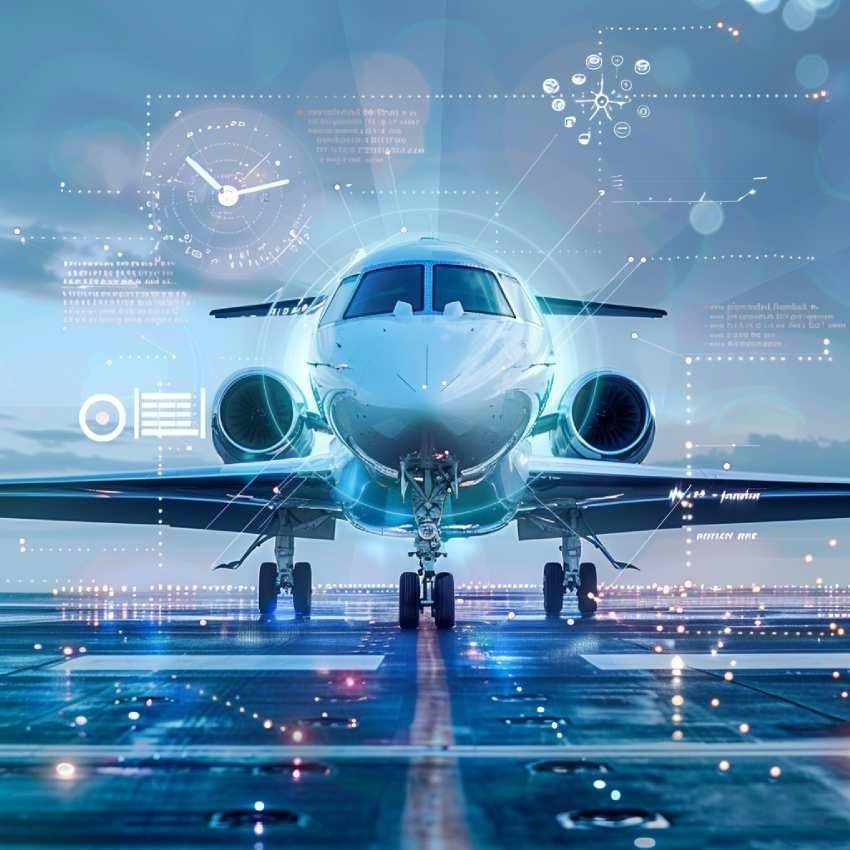AeroGenie — Seu Copiloto Inteligente.
Tendências
Categories
Ant International and Citi Launch AI Model to Stabilize Airline Fares and Support Tourism

Ant International and Citi Launch AI Model to Stabilize Airline Fares and Support Tourism
On a busy July morning at New Delhi’s Indira Gandhi International Airport, a significant technological advancement is quietly taking shape—one that promises to transform the global tourism industry. Ant International, in collaboration with Citi and several leading airlines, has introduced the Falcon Time-Series Transformer (TST) Model, an artificial intelligence innovation designed to address a longstanding challenge in the airline sector: foreign exchange (FX) risk.
The Falcon TST Model and Citi’s Fixed FX Rates
The Falcon TST is a transformer-based AI forecasting model that utilizes the same underlying technology as contemporary large language models. By processing extensive historical time-series data—including ticket sales, fuel prices, and macroeconomic indicators—the model can predict future foreign exchange trends with up to 90% accuracy in initial trials. Equipped with nearly two billion parameters, Falcon TST represents a highly advanced approach to forecasting currency fluctuations.
When combined with Citi’s Fixed FX Rates solution, which enables corporate clients to lock in foreign exchange rates for predetermined periods, this technology offers airlines a new level of financial certainty. This integration significantly reduces the uncertainty associated with currency management, allowing airlines to hedge against volatility and adopt more stable pricing strategies.
The Importance of FX Stability for Tourism
Fluctuations in currency exchange rates affect nearly every facet of the travel industry, from airfare and onboard services to route planning and airport fees. Volatile exchange rates can discourage international travelers, disrupt the launch of new airline routes, and undermine the economic stability of tourism-dependent regions, especially in developing countries.
By delivering more precise FX forecasts and enabling airlines to secure fixed rates, the Falcon TST model helps carriers offer more consistent airfares. This stability not only enhances passenger confidence but also contributes to the long-term sustainability of the global tourism sector.
Early Implementation and Industry Impact
Asia has served as a key testing ground for this technology. In a recent pilot program with a major Asian airline, the Falcon TST model, paired with Citi’s fixed-rate instruments, achieved a 30% reduction in FX hedging costs. These savings have the potential to be passed on to consumers through more stable or even reduced airfares, thereby improving both airline resilience and affordability for travelers.
Challenges and Industry Outlook
Despite its promising results, the deployment of Ant International and Citi’s AI-driven solution faces several challenges. Regulatory scrutiny, competitive market dynamics, and the necessity for broad industry adoption may slow its progress. Some traditional financial institutions and airlines remain cautious about embracing the technology, while competitors are expected to develop similar AI-based tools to manage FX risk.
Nonetheless, the initial success of Falcon TST highlights the potential for artificial intelligence to introduce greater stability into airline pricing and the wider tourism industry. As the sector confronts these challenges, innovations like Falcon TST could play a pivotal role in shaping the future of travel by providing enhanced predictability in an inherently volatile market.

Capital A Completes Sale of Aviation Business to AirAsia X

Four Gateway Towns to Lake Clark National Park

PRM Assist Secures €500,000 in Funding

Should Travelers Pay More for Human Support When Plans Go Wrong?

InterGlobe Aviation Shares Rise 4.3% Following January Portfolio Rebalancing

Key Market Segments Shaping Airline Route Profitability Software

Locatory.com Gains Traction Among Aviation MROs and Suppliers

JetBlue Flight Makes Emergency Landing Following Engine Failure

58 Pilots Graduate from Ethiopian University

The Engine Behind Boeing’s Latest Widebody Aircraft
